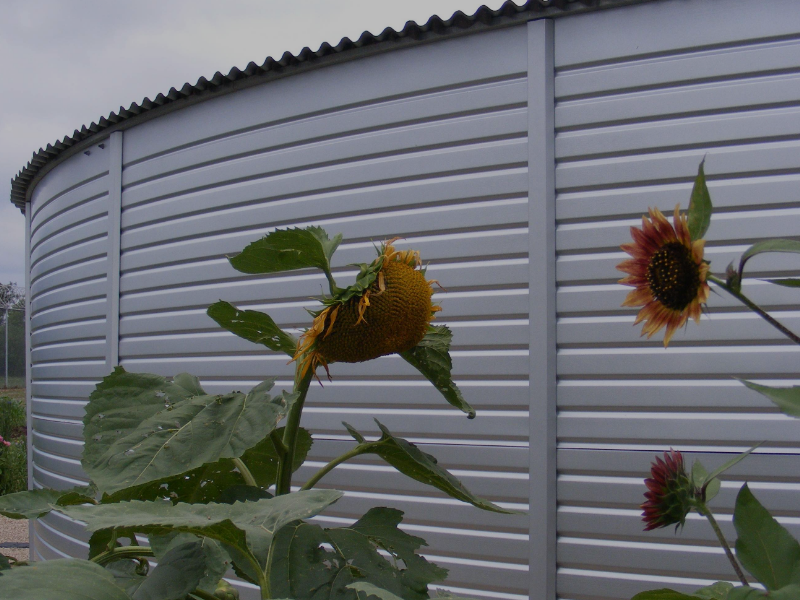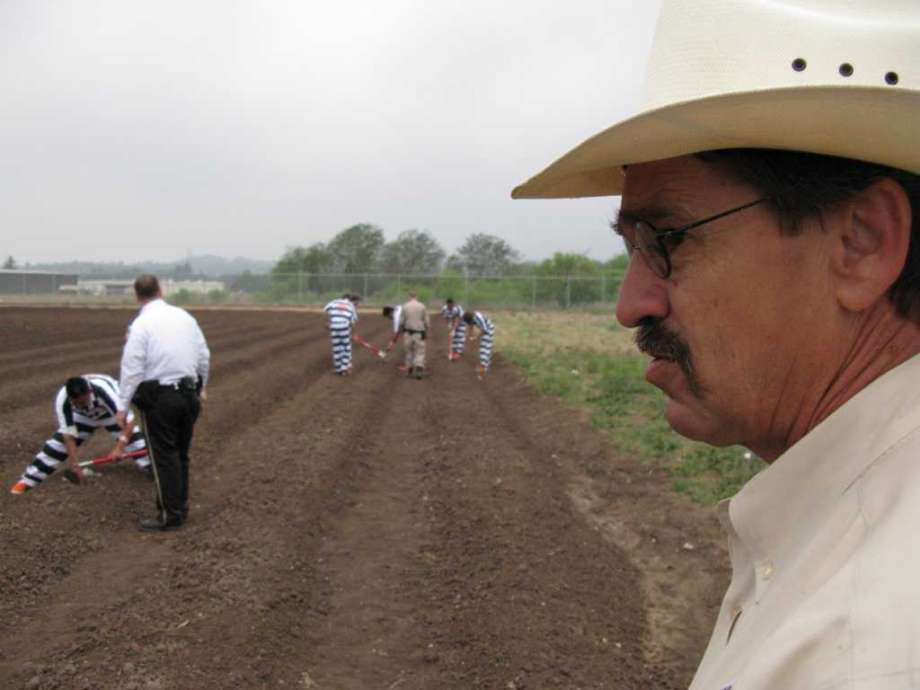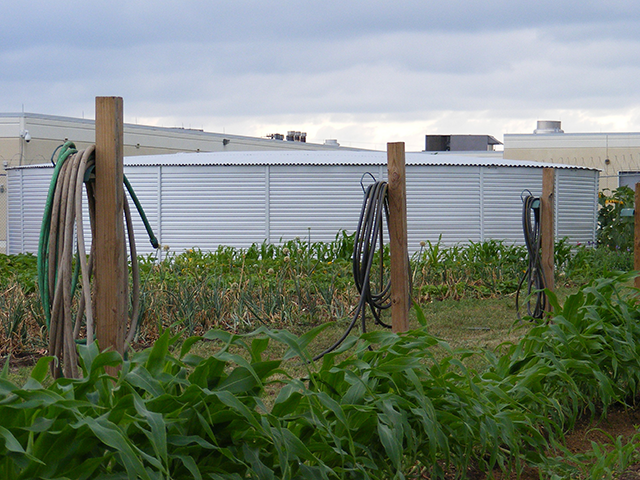Sponsored Post – from Acer Water Tanks
This post was written by Barry G. Wall of Rainwater Systems Inc, a company that designs, installs, and maintains rainwater systems across Texas.
Funding is typically an issue that stops penitentiary systems from implementing sustainable practices. Setting up any sort of new rehabilitation program or community service means an initial investment as well as pulling prison guard workforce to run it.
Sheriff “Rusty” Hierholzer, Sheriff of Kerr County, Texas created a highly innovative, multi-level community project, by finding funding in a unique way. Sheriff Rusty engaged several community entities, all working together to help rehabilitate inmates while providing a much-needed product and service for our senior citizens.
The Kerrville County Adult Detention Center, like many other community jail systems, has an “inmate store” where inmates may purchase personal items with money deposited into their accounts. Any profits made from sales are required to go back into projects for the jail and into rehab opportunities for the inmates.
One program that has been created with these profits utilizes the practice of rainwater harvesting to provide a sustainable water source for a garden that produces enough food that it can be donated to K-STAR, a local family shelter. The program focuses on teaching inmates proper farming skills and sustainable growing practices, on top of providing returns in fresh food.
The Kerrville County road and crew teams, along with inmate labor, prepared one acre for a large vegetable garden. Plants and seeds, deemed unsuitable for retail sale, are donated by local nurseries and nurtured back to health by inmates for planting. The garden is tended by a special group of inmates, also known as “trustees”, that have worked hard to be selected as gardeners and are managed by one special deputy skilled in farming.
As payment, the trustees are given one day off their sentence for every day they work in the garden. They are educated in best farming practices, including water management. The project goes a step further by sending all the produce to local programs such as Meals on Wheels and K-STAR. There is an average of 9,000 pounds of produce grown from this garden. The donated produce helps to significantly reduce food cost for these programs, as well as provide the freshest food possible.
The garden’s newest rainwater harvesting system was designed and installed by Rainwater Systems, Inc. The system has a collection capacity of 136,000 gallons with a rooftop collection space of approximately 40,000 square feet. This sustainable water source is low-maintenance and low-cost since once the initial investment of the system is complete, the water collected comes without cost.
The garden’s original 70,000-gallon rainwater system didn’t have enough water capacity, which made it susceptible to the ever-increasing drought. The water was often cut off to the garden during rationing, especially in 2011. As a result, the late July and August gardens suffered, as well as trustee morale and Meals On Wheels. To resolve this, Rainwater Systems Inc. increased the rainwater storage capacity so that the water could be captured during the rainy season and used throughout the dry seasons without running out. Now, the garden stands in full growth throughout the growing seasons as a job well done for the whole community.
The rainwater harvesting system is a big part of what makes this inmate gardening program possible since it is a basically free water source, instead of having a huge water cost. The advantages of the program have not only provided two local shelters with fresh produce but have also led to inmates gaining knowledge about growing food and rainwater harvesting.
Please note – editorials and sponsored posts are written by guest writers to inform and educate the community on a variety of different viewpoints, as well as to share information about local eco-friendly businesses and organizations. However, they do not necessarily reflect the opinions of the Austin EcoNetwork.





